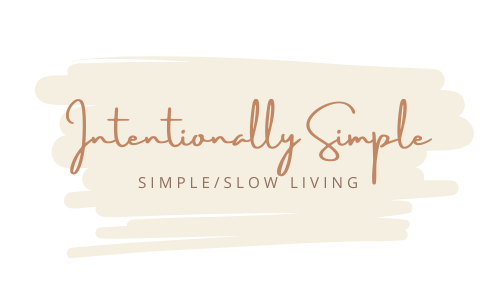The analog lifestyle might sound old-fashioned at first glance. After all, we live in a time where nearly everything is digitized, automated, and available at the swipe of a screen. Phones organize our days, watches track our sleep, and reminders buzz for every little task. With so much convenience at our fingertips, the idea of going back to pen and paper or turning off screens for hours can feel unnecessary.
Here’s the twist: analog lifestyle habits are not about rejecting technology. They are about creating intentional pauses that let your mind, body, and nervous system reset.
Think of it like sipping tea slowly instead of chugging an energy drink. One grounds you, the other spikes and crashes. Analog habits work the same way, giving you space to breathe in a digital world that rarely shuts off.
Let’s explore ten analog lifestyle habits you can try without throwing your phone out the window.
1. Wake Up with an Analog Alarm Clock
The first thing many of us see in the morning is the glow of our phone. That tiny act often leads straight into scrolling, emails, and notifications before our feet even touch the ground.
An analog alarm clock breaks this cycle. Research shows that morning light exposure without screen time helps regulate your circadian rhythm, lowering stress hormones like cortisol. By using a simple alarm clock, you start your day screen-free, giving your brain a calmer entry into the world.
This is one of the simplest analog lifestyle habits you can adopt, yet it can transform your mornings.
2. Keep a Paper Planner
Digital calendars are efficient, but paper planners are powerful in a different way. Writing by hand boosts memory and deepens focus. Studies have shown that handwritten notes activate more areas of the brain linked to learning compared to typing.
For a deeper dive into why so many people are making this shift, check out The Rise of the Analog Lifestyle: Why Going Offline Feels Like Coming Home. It explores how even in our hyper-connected age, paper and pen still win for focus and clarity.
Using a planner is one of those analog lifestyle habits that helps you slow down while staying productive.
3. Try a Gardening Log
In an age of plant apps and reminders, there’s something deeply grounding about keeping a gardening log. Imagine a small notebook filled with dates of when you planted basil, how tall your tomatoes grew, or the smell of your first jasmine bloom.
Gardening itself is analog therapy. It connects you with the soil, the seasons, and patience. A log helps you notice patterns in nature and builds a personal archive of your growth—literally and metaphorically.
4. Sketch, Doodle, or Journal on Paper
Screens make us consume, while paper invites us to create. Sketching, doodling, or keeping a handwritten journal trains your attention to stay with one thing at a time.
Neuroscientists say the act of drawing activates both the left and right hemispheres of the brain. It improves problem-solving, reduces anxiety, and gives emotions an outlet that typing often cannot. Even if you do not consider yourself an artist, doodling in the corner of a page is a micro-shift toward analog lifestyle habits.
5. Read Physical Books
E-books are convenient, but research found that people who read physical books understand and remember the material better than those who read on screens.
Holding a book slows you down. The weight, the texture of the paper, even the faint smell of ink—all engage your senses. It transforms reading from a quick scroll to a full-body experience, one that invites immersion instead of distraction.
Reading real books is one of the most grounding analog lifestyle habits for both the brain and body.
6. Write Letters Instead of Texts
When was the last time you received a handwritten letter? In our digital world, letters feel almost magical. They carry not just words but also time, thought, and presence.
Writing a letter forces you to think before you write. You choose your words more carefully, you slow your pace, and you create something tangible. For the receiver, it becomes a keepsake. Unlike texts that disappear in the sea of chats, a letter can sit in a drawer for decades.
7. Cook Without Screens
Many of us watch recipes on YouTube or scroll through step-by-step guides on Pinterest while cooking. But what if you cooked without screens? Pull out a physical cookbook, or better yet, cook from memory.
Analog cooking re-engages your senses. You listen to the sizzle, smell the spices, and taste as you go without pausing to check a screen. It becomes meditative. Psychologists note that sensory-rich activities like cooking reduce stress and increase mindfulness.
This makes screen-free cooking one of the most delicious analog lifestyle habits to try.
8. Use a Film Camera
Smartphones let us snap thousands of photos, but often we forget them minutes later. A film camera, on the other hand, makes every shot intentional.
Waiting to develop photos cultivates patience, and holding printed images brings joy that scrolling through endless camera roll photos cannot. The analog lifestyle here is not about nostalgia—it is about cherishing fewer but more meaningful moments.
9. Practice Handwriting for Reflection
Typing is efficient, but handwriting slows your thoughts into a rhythm. Try writing affirmations, gratitude lists, or reflections in a notebook.
Studies in psychology show that expressive handwriting reduces anxiety and helps regulate emotions. It is like pouring out the clutter in your head onto paper, giving your nervous system a sense of release.
This is one of the analog lifestyle habits that doubles as a mental health tool.
10. Take Walks Without Tech
Digital detox can be as simple as leaving your phone at home during a walk. Instead of tracking your steps or taking photos, just walk. Notice the color of the sky, the sound of leaves crunching, or the smile of a neighbor.
Walking without distraction is a reset button for the brain. Researchers at Stanford University found that walking improves creative thinking by up to 60 percent. No apps required.
Busting the Myth: Analog Lifestyle Habits Are Not Laziness
One of the biggest misconceptions is that analog lifestyle habits equal being unproductive or resisting progress. In reality, it is the opposite. Analog choices sharpen focus, strengthen memory, lower stress, and create deeper human connection. They are tools, not constraints.
For more on why younger generations are embracing this shift, explore The Great Tech Rebellion: Why More Young People Are Choosing Analog Lifestyles. It explains how analog choices are not about rejecting ambition but about protecting wellbeing.
How to Start Small
You do not need to replace your smartphone with a rotary phone. Start with one analog shift. Maybe it is using an analog alarm clock for a week, writing a short journal entry daily, or cooking one meal without a screen.
These micro-shifts ripple outward. Suddenly, you realize you are calmer in the mornings, less reactive during the day, and more present in your relationships.
Final Thought
Analog lifestyle habits are not about rejecting technology. They are about reclaiming your attention and energy in a noisy world. Each habit is a small doorway back into presence—whether through paper, soil, ink, or silence.
So here’s a challenge for you: choose one analog habit from this list and try it this week. Notice how your body feels, how your mind slows, and how life suddenly feels more grounded. Sometimes, living fully is not about speeding up but about savoring the pauses.


